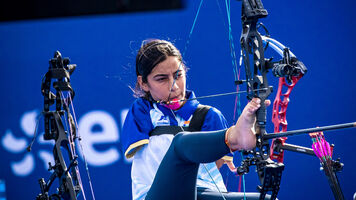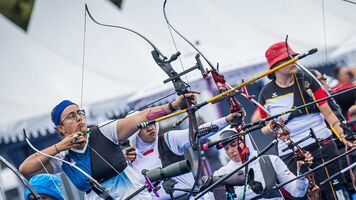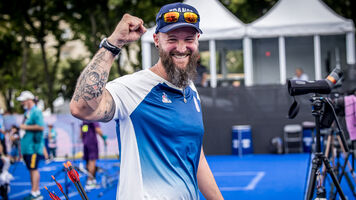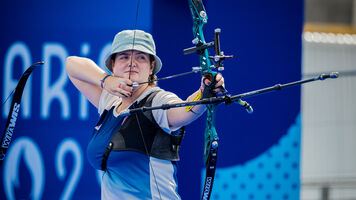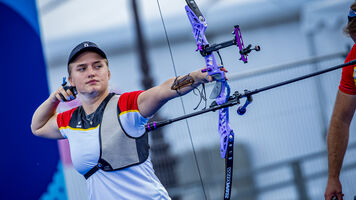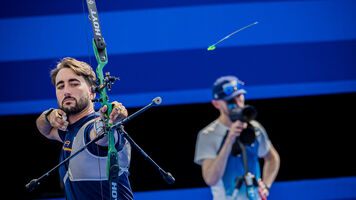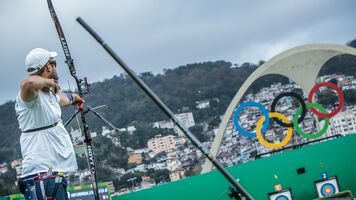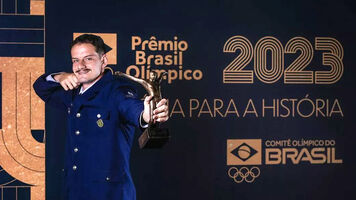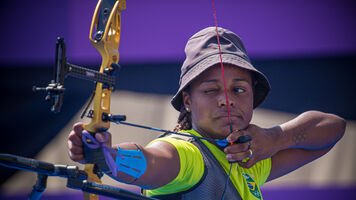Olympic Champions accustomed to being a target
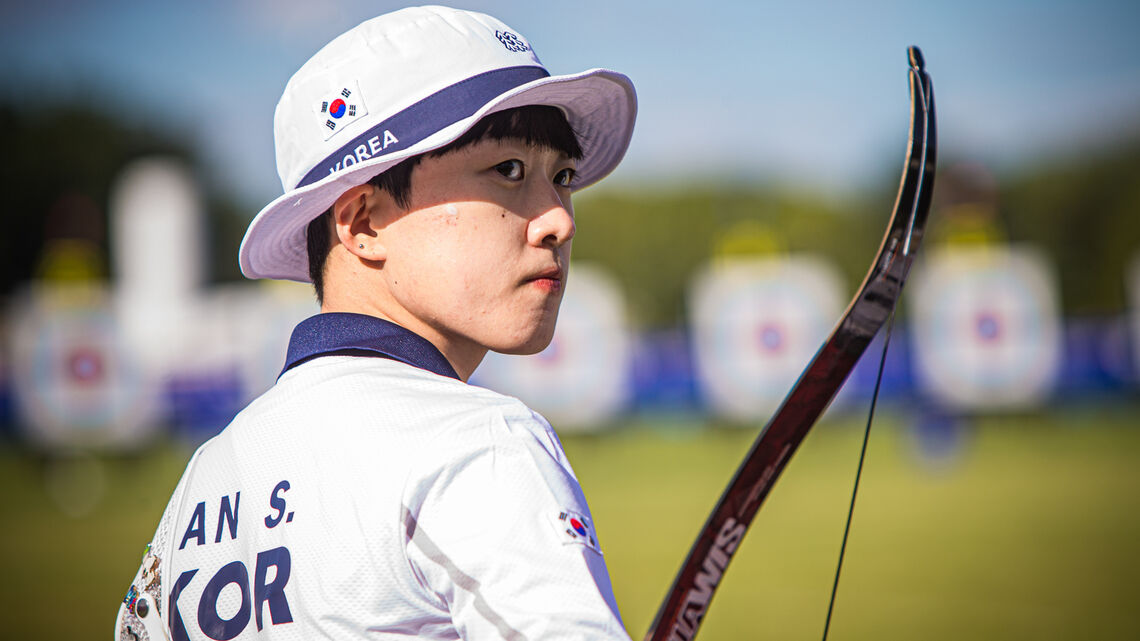
An San was back on the shooting range in Yankton last month, one competition and a few 1000 kilometres removed from where she cemented her place in archery history, and where her recent run of success had taken on a life of its own.
The Korean archer’s three gold medals at the Tokyo 2020 Olympic Games – the first athlete in the sport’s modern history to crest three podiums at one edition of the Olympics – had garnered an unshakeable influx of attention as she ambled around the competition field.
The 20-year-old belongs to an echelon of archers whose mere presence raises the temperature, even of something routine: Far from a demonstrative personality through her words or demeanour, the quality of her performances spoke volumes nonetheless.
“I didn’t expect it to happen this way,” she said through an interpreter, though she abstained from the humility customary of many world-class athletes.
“I’m proud of myself to have done well in the Olympics and world championship matches. I will do my best to train and focus and maintain a strong balance as I continue in the future.”
An has a resume that generally makes an archer of her calibre the favourite, not just to win her first match, but also to capture individual and team titles.
It wouldn’t have surprised if she had lost earlier, considering the whirlwind of the Olympics and the comedown that inevitably follows.
But what stood out, even in a sport that has a knack for humbling the world’s best athletes, is the sense of inevitability that followed her through every match.
An qualified first at the Yankton 2021 Hyundai World Archery Championships, shooting a recurve women’s field-leading score for the back half to seize the top seed and affirm her reputation among her peers.
Two more team golds and an individual bronze soon followed, giving An six podium finishes in two of the biggest events the sport has to offer.
“I knew that if I held back at all, I was not going to win,” said USA archer Casey Kaufhold, who did the unthinkable by upsetting An in the semifinals of the individual event.
While she wasn’t hurting for motivation entering the match, she said, triumphing over an archer with An’s pedigree made it even more special.
Olympic Champions, of course, are emblazoned with a target on their back that remains fastened for the rest of their shooting careers. Yet An, nevertheless, maintained that the surrounding environment didn’t contribute to her loss.
There wasn’t any more pressure on her to win in Yankton, she insisted, but there also wasn’t any less.
“There’s a lot of attention from the spectators,” An said, adding that she has detected the added boost in performance her presence inspires. “Yes, I notice it. But it doesn’t matter who the other shooter is. I like to focus on myself and my performance. That’s it.”
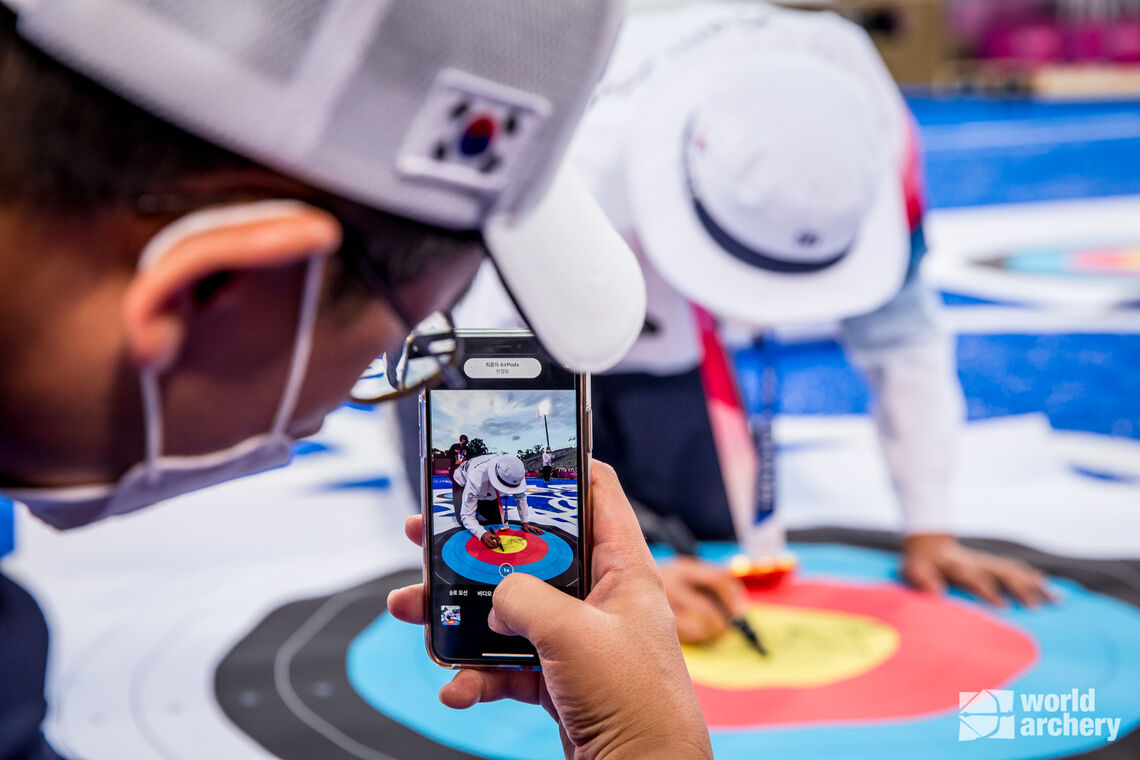
An did admit to feeling more eyes on her than before, as well as a certain level of expectations from those around her. Then there is perhaps the greater pressure of maintaining a standard that will keep her on the Korean national team in the seasons to come.
For Korea’s women, the toughest challenges often come from within their own country. There is no shortage of teammates waiting to take her place.
At the world championships, though, An allowed that she only struggles so much with expectations, perceived or otherwise. Her results are confirmation of that sentiment. The same poise she showed in Tokyo was also on display in Yankton.
“I feel more responsibility, but not more pressure,” she said. “My personality is well-suited for archery. I don’t know why, exactly, but I don’t get nervous that much. I always feel calm.”
“The most important thing is to trust that I can do it – to trust that I can win,” she said when asked how she is able to exude such a level-headed demeanour. “Trust comes from training. I concentrate on shooting and training to prepare myself to compete.”
That sense of trust manifests in different ways, Turkey’s Mete Gazoz said. Rather than ignore the target on his back, the reigning men’s Olympic Champion has chosen to embrace it.
“This is my first competition as an Olympic Champion, which is a little bit different than past world championships,” Gazoz said. “I walk around the field and hotel, and some of the archers look at me differently. It’s a little bit weird.”
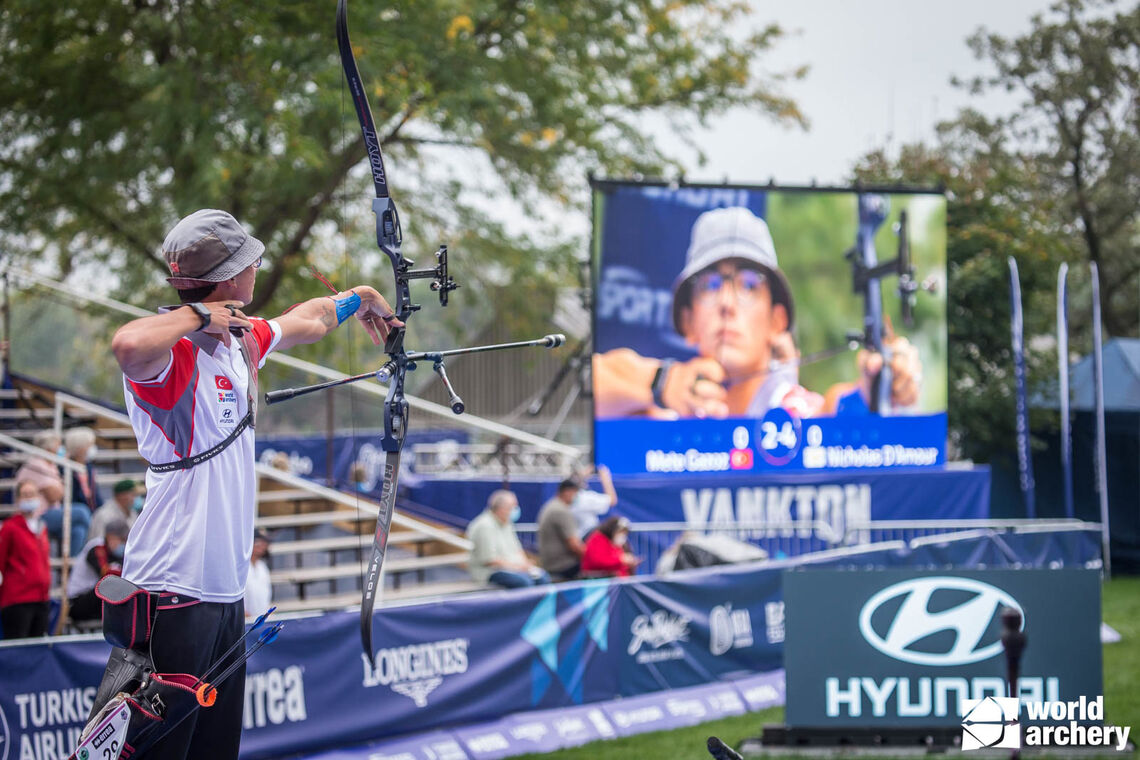
His remark wasn’t so much a complaint as a neutral observation, he said.
“I did this important thing, winning the gold medal, but it doesn’t matter,” Gazoz continued. “You have to act like you haven’t won an Olympic medal. Now that I’m at the top, I want to stay at the top. There’s always something more. Everyone wants to beat the Olympic Champion. It’s normal.”
Gazoz said the added attention reminded him of stage three of the Hyundai Archery World Cup in Paris, where an anonymous figure inspired a bout of curiosity on his end.
Gazoz asked his coach, Goktug Ergin, who an older gentleman roaming the field was.
Ergin replied by informing his pupil that it was 2004 Olympic Champion Marco Galiazzo, prompting a spark of wonder.
“I said, wow! – it was so cool,” said Gazoz, clearly taking pride that he now belongs in such company.
“And it’s so cool because winning an Olympic medal is very different,” he continued. “You’re an Olympic Champion forever. Maybe in the future, someone will point to me and say who’s that old Turkish guy and they will feel the same way.”




